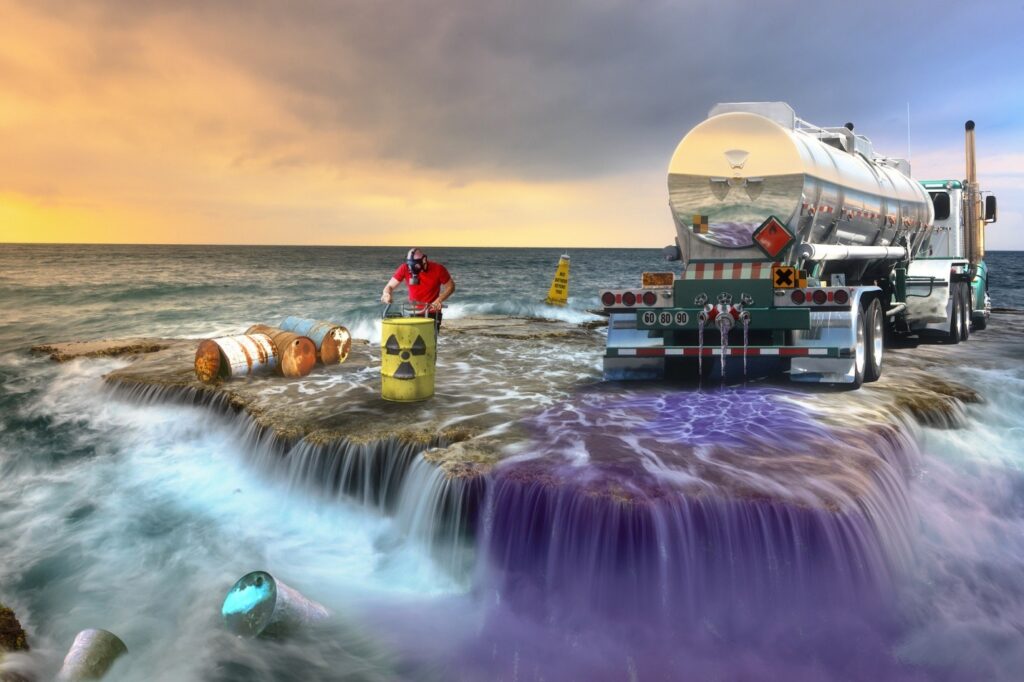The Definitive Guide for Reclaim Waste
The Definitive Guide for Reclaim Waste
Blog Article
All about Reclaim Waste
Table of ContentsLittle Known Questions About Reclaim Waste.Rumored Buzz on Reclaim WasteThe Ultimate Guide To Reclaim WasteAn Unbiased View of Reclaim WasteReclaim Waste Can Be Fun For Everyone
Explore the kinds, events, and types of liquid waste. Residential sewer waste describes the waste and products from a residential septic system. This kind of waste is produced by human beings in residences, schools, and various other structures. This only includes septic systems that have a drainpipe field. The correct management and disposal of domestic sewer waste need fluid waste to be transferred to a sewer treatment plant where the correct techniques and devices are applied to detoxify and take care of waste.
Industrial waste often includes possible hazards, such as flammable products or a mixture of liquid and strong waste products, and needs an extra innovative and thorough disposal process. The disposal of industrial waste generally includes the filtering of waste before transport to ensure safe and appropriate disposal. Hazardous waste is created from byproducts and overflow of commercial procedures and manufacturing.
This kind of waste can not utilize the very same sewage monitoring transportation or processes as septic or commercial fluids. The hazardous waste monitoring procedure needs the inspection and screening of fluid waste prior to it goes through the disposal process (liquid waste disposal melbourne). Runoff waste is the liquid waste that comes from runoff and excess stormwater in highly populated areas or cities
Runoff waste can trigger contamination and flooding if not dealt with correctly. Making sure proper waste management can avoid catastrophes and reduce ecological damage.
The Ultimate Guide To Reclaim Waste
Call PROS Services today to find out about our waste monitoring and disposal services and the proper ways to take care of the fluid waste you generate.
(https://hearthis.at/leon-aube/set/reclaim-waste/)This so-called 'wastewater' is not only a vital source however, after treatment, will be launched to our land, waterways or the sea. Used water from commodes, showers, bathrooms, kitchen area sinks, laundries and commercial processes is recognized as wastewater.

water made use of to cool down equipment or tidy plant and devices). Stormwater, a type of wastewater, is drainage that flows from agricultural and metropolitan locations such as roofs, parks, gardens, roads, courses and rain gutters into stormwater drains, after rainfall. Stormwater streams without treatment straight to neighborhood creeks or rivers, at some point reaching the ocean.
The 10-Minute Rule for Reclaim Waste
In Queensland, many wastewater is dealt with at sewage treatment plants. Wastewater is transported from domestic or industrial sites with a system of sewage systems and pump terminals, referred to as sewage reticulation, to a sewage treatment plant. City governments construct, keep and operate most sewer therapy plants. Operators are certified under the Environmental Management Act 1994 to release treated wastewater at an acceptable ecological criterion right into rivers.
The Department Get the facts of Natural Resources advises regional federal governments regarding handling, operating and keeping sewerage systems and treatment plants. In unsewered areas, local federal governments might need householders to mount specific or family sewer therapy systems to deal with domestic wastewater from toilets, cooking areas, washrooms and laundries. The Department of Natural Resources authorizes making use of house systems when they are proven to be reliable.
In some new communities, treatment of some stormwater to eliminate clutter, sand and gravel has actually started making use of gross pollutant catches. Wastewater treatment takes place in four stages: Removes solid issue.
Uses small living microorganisms knows as micro-organisms to damage down and get rid of remaining liquified wastes and great particles. Micro-organisms and wastes are integrated in the sludge.
Reclaim Waste - Questions
Nutrient elimination is not offered at all sewage treatment plants because it requires costly specialized devices. Clear liquid effluent created after treatment may still include disease-causing micro-organisms - liquid waste removal.

This normally indicates wastewater has to be treated or impurities gotten rid of prior to it can be discharged to rivers. Many wastewater streams into the sewage system. Under the Act, regional federal governments carry out approvals and licences for ecologically appropriate activities (Periods) including wastewater launches that could have a regional impact. The department administers authorizations and licences to ERAs including wastewater releases that may have a local or statewide effect.
The smart Trick of Reclaim Waste That Nobody is Discussing
Monitoring supplies accurate info concerning water quality and can confirm that licence conditions are being satisfied. The information obtained via monitoring offers the basis for making water high quality decisions.
Report this page